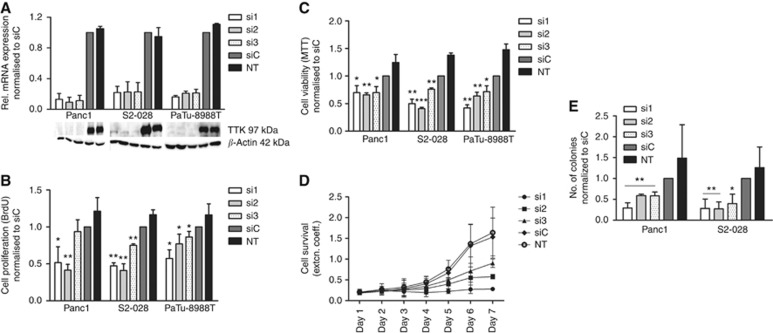Figure 2.
Impaired proliferation and viability of pancreatic cancer cells following RNAi-mediated inhibition of TTK expression. (A) Relative levels of TTK mRNA and protein after transient transfection of TTK-specific and control siRNAs. qRT-PCR analyses demonstrated that all three TTK-specific siRNAs led to ∼70% reduction in TTK mRNA levels compared with non-silencing control siRNA in three different pancreatic cancer cell lines (bar graphs). Expression was normalised to control siRNA-treated cells. Similarly, TTK protein levels were nearly undetectable 72 h after siRNA transfection as determined by western blot analyses (lower panels). Beta-actin served as loading control. Loss of TTK protein significantly impaired proliferation and viability of pancreatic cancer cell lines as measured by DNA BrdU incorporation (B) and MTT assays (C), respectively. (D) Long-term growth inhibition following transient silencing of TTK in PaTu-8988T cells was stable over at least 7 days as assessed by survival assay. (E) Soft agar assays established significantly reduced numbers of colonies in TTK knockdown populations of Panc1 and S2-028 cells compared with controls after 10 days of continuous culture under non-adherent conditions. All data represent mean±s.e.m. of at least three independent experiments. siC=cells transfected with non-silencing control siRNA; NT=untreated cells. *P<0.05; ** P<0.01; *** P<0.001 (Student's t-test).

